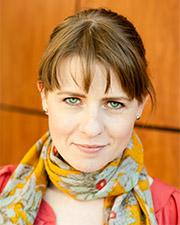Ph.D. in Organizational Behavior
What sets KU apart
- Preparation for academic careers: KU's program is designed to launch you into a successful academic career at a leading research university.
- Close faculty mentorship: Work side-by-side with experienced scholars to develop expertise in research and teaching.
- Collaborative research community: You'll join a supportive environment that encourages work with faculty in the Human Resource Management and/or Strategic Management domains when shared research interests exist.
- Access to premier resources: Connect with a wide range of research databases and resources to support your scholarly work.
- Flexible timeline: Complete your doctorate in four to five years, tailored to your research and career goals.
Research driving organizational insights
Our faculty’s research spans a diverse range of topics within organizational behavior, including:
- Employee well-being
- Work-family interfaces
- Work design
- Teams and collaboration
- Decision-making
- Ethics and organizational justice
- Emotions in the workplace
- Leadership
- Careers and career development
- Individual differences
- Voice and employee advocacy
- Overconfidence and judgment
- Motivation
- Creativity and innovation
- Cross-cultural differences
Program faculty actively contribute to multiple domains, publishing in top-tier journals such as Academy of Management, Journal of Applied Psychology, and Organization Science.
Designed for varied academic foundations
No specific academic preparation is required beyond an undergraduate degree: Students with formal training in business, economics, psychology, sociology, communications, and more thrive in the program.
List
Research
Key research areas within the discipline include employee well-being, work design, teams, decision-making, ethics, emotions, leadership, careers, individual differences, motivation, creativity and innovation, organizational change, culture, and cross-cultural differences.
List
Teaching
Part of our mission is to develop effective teachers. To that end, all doctoral students are required to teach at least two sections as independent instructors. The school and university prepare and reward doctoral students for excellence in teaching through various programs and awards.
What to expect in the program
View degree requirements and a detailed list of courses in the KU Academic Catalog.
Organizational Behavior core courses note: BE 917: Business Economics is preferred. Students coming into the program directly from an undergraduate degree may consider substituting BE 701: Business Economics, or ECON 700: Survey of Microeconomics.
In the event a student has taken a graduate economics course prior to enrolling as a KU doctoral student, she/he may waive the requirement and substitute either an elective doctoral content course or a statistics/research methods course for this requirement.
- Year 1: Coursework and research
- Year 2: Coursework and research
- Year 3: Comprehensive exams and research
- Year 4: Dissertation and job market
- Year 5 (if necessary): Dissertation and job market


